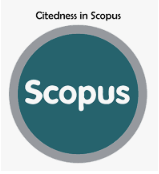Enhancing Quality Assurance in Higher Education through Strategic Library Management and Digital Literacy Initiatives
DOI:
https://doi.org/10.56404/jels.v5i2.174Keywords:
Quality Assurance, Strategic Library Management, Digital Literacy, Education 5.0Abstract
In the era of Education 5.0, higher education institutions are increasingly required to ensure quality assurance mechanisms that promote academic excellence and global competitiveness. Libraries, as knowledge management hubs, play a strategic role in supporting institutional quality by providing access to information, facilitating digital literacy, and enhancing research productivity. This study aims to examine how strategic library management and digital literacy initiatives contribute to strengthening quality assurance frameworks in higher education. Using a library research method, this paper synthesises findings from 52 international journal articles, books, and reports published between 2018 and 2024. The results indicate that universities implementing innovative library management strategies such as the integration of digital repositories, open-access scholarly databases, and user-centred services significantly improve teaching quality, research visibility, and accreditation performance. Furthermore, initiatives to develop students’ and faculty members’ digital literacy competencies contribute to enhanced learning outcomes and institutional ranking. The findings highlight the necessity of integrating strategic library policies with quality assurance systems to meet international accreditation standards and ensure sustainable institutional development.
References
Abror, S., Mutrofin, M., & Hardinanto, E. (2024). Reimagining Teacher Professional Development to Link Theory and Practice. JTL: Journal of Teaching and Learning, 1(1), 22–36.
Adiawaty, S. (2023). ADAPTIVE STRATEGIES FOR 21ST CENTURY LEARNING: DIGITAL LITERACY AND LEARNING OUTCOMES IN CONTEMPORARY INDONESIAN HIGHER EDUCATION. International Journal of Teaching and Learning, 1(2).
Amanda, M. T., Mirza, A. A., & Zaitun Qamariah. (2023). A History Of Merdeka Curriculum For English Education In Indonesia. Jurnal Ilmu Pendidikan Nasional (JIPNAS), 1(2), 59–67. https://doi.org/10.59435/jipnas.v1i2.19
Azeiteiro, U. M., Leal Filho, W., & Aires, L. (Eds.). (2018). Climate Literacy and Innovations in Climate Change Education. Springer International Publishing. https://doi.org/10.1007/978-3-319-70199-8
Carmo, M., Ed. (2020). Education and New Developments 2020.
Clarke, A., & Cripps, P. (2012). A Multiple Intelligences Approach to Designing Learning in Undergraduate Fine Art. Nternational Journal of Art & Design Education, 31(2).
Creswell, J. W., & Clark, V. P. (2007). Mixed methods research. Thousand Oaks, CA.
Habibulloh, M. (2024). The Role of Islamic Education in Building Interreligious Tolerance in Indonesia. IJEMR: International Journal of Education Management and Religion, 1(2), 63–82.
Habibulloh, M., Sholeh, M. I., Farisy, F. A., & Nasihuddin, M. (2025). Effectiveness of Leadership in Managing Religious-Based Educational Institutions. IJEMR: International Journal of Education Management and Religion, 2(1).
Habibulloh, M., Sholeh, M. I., & Idawati, K. (2024). Exploring Technological Innovations and Approaches in Modern Education. SAHRI: Journal of Studies in Academic, Humanities, Research, and Innovation, 1(1), 49–66.
Huang, J., Saleh, S., & Liu, Y. (2021). A Review on Artificial Intelligence in Education. Academic Journal of Interdisciplinary Studies, 10(3), 206. https://doi.org/10.36941/ajis-2021-0077
Khathayut, P., & Walker-Gleaves, C. (2021). Academic faculty conceptualisation and understanding of plagiarism – a Thai university exploratory study. Journal of Further and Higher Education, 45(4).
Khomsiyatun, U. (2019). POLA PENGEMBANGAN LITERASI BAHASA PADA ANAK STUDI KASUS DI PAUD WADAS KELIR. Jurnal Metabasa, 1(2).
Komalasari, K. (2012). The Effect of Contextual Learning in Civic Education on Students’ Civic Skills. Educare, 4(2).
Kontovourki, S., Philippou, S., & Theodorou, E. (2018). Curriculum making as professionalism‐in‐context: The cases of two elementary school teachers amidst curriculum change in Cyprus. The Curriculum Journal, 29(2), 257–276. https://doi.org/10.1080/09585176.2018.1447308
Lubis, M. A. (2015). Effective Implementation of the Integrated Islamic Education. Global Journal Al Thaqafah, 5(1), 59–68. https://doi.org/10.7187/GJAT792015.05.01
Mahira, W. Z., & Bustam, B. M. R. (2024). The Concept of Literacy in Islamic Education is in Accordance with the Qur’an, Surah Al ’Alaq 1-5. Islam in World Perspectives, 3(1).
Mahmud, R. (2015). A Review of Research Literature on Obstacles that Prevent Use of ICT in Pre-Service Teachers’ Educational Courses. International Journal of Education and Literacy Studies, 3(2). https://doi.org/10.7575/aiac.ijels.v.3n.2p.25
Ngwenya, B., Sibanda, V., & Matunzeni, T. (2016). Challenges and benefits of total quality management (TQM) implementation in manufacturing companies: A case study of delta beverages, in Zimbabwe. Int. J. Orig. Res, 2.
Nurrahman, A., Cahyani, M. D., Nurfatmawati, L., & Wibowo, H. (2023). Developing E-Learning Evaluation Instruments: A Study in Vocational School. Ournal of Office Administration: Education and Practice, 3(3).
Pradhana, Y., Andriani, V. E., Widianti, M. A., Khansa, F. N., Kadarsih, D., & Sitorus, A. D. (2025). Public Speaking Training In Building Self-Confidence As Optimal Preparation For The World Of Work For Students Of SMK Budi Asih, Jakarta. Jurnal Pengabdian Kepada Masyarakat, 1(2).
Riveira, C., Fadhila, A., & O’Reilly, J. (2014). Technological Advancements Shaping Future Learning Environments. SAHRI: Journal of Studies in Academic, Humanities, Research, and Innovation, 1(1), 1–17.
Rubrica, R. (2019). An Action Research on Project-Based Learning and Understanding by Design and Their Effects on the Science Achievement and Attitude of Science Students. Journal of Education and Practice, 23(5). https://doi.org/10.7176/JEP/10-5-02
Satyawati, S. T., & Dwikurnaningsih, Y. (2024). Strategies For Organization In Educational Resource Management. SAHRI: Journal of Studies in Academic, Humanities, Research, and Innovation, 1(1), 33–48.
Seidman, I. (2006). Interviewing as qualitative research: A guide for researchers in education and the social sciences. Teachers College. Coloumbia University.
Sheffield, R., Blackley, S., & Moro, P. (2018). A professional learning model supporting teachers to integrate digital technologies. Issues in Educational Research, 28(2), 487–510.
Sholeh, M. I. (2023). Evaluation and Monitoring of Islamic Education Learning Management in Efforts to Improve Education Quality. Communautaire: Journal of Community Service, 2(2), 108–117. https://doi.org/10.61987/communautaire.v2i2.159
Sholeh, M. I., Lestari, A., Erningsih, E., Yasin, F., Saleh, F., Suhartawan, V. V., Pattiasina, P. J., Widya, A., Sampe, F., Fadilah, N. N., & others. (2024). Manajemen Kurikulum. CV. Gita Lentera. https://books.google.co.id/books?id=Ql8FEQAAQBAJ
Shull, F., Singer, J., & Sjøberg, D. I. K. (Eds.). (2008). Qualitative Methods in Empirical Studies of Software Engineering. Springer.
Syafi’i, A., Nur, ‘Azah, & Arifin, Z. (2024). Developing Global Competencies in Teacher Education for 21st Century Learning Environments. JTL: Journal of Teaching and Learning, 1(1).
Syafi’i, K., & Ikwandi, M. R. (2023). Strategi Kepala Sekolah Dalam Meningkatkan Mutu Pendidikan Melalui Program Unggulan di SMK Kiyai Mojo Tembelang Jombang. JMPI: Jurnal Manajemen, Pendidikan, dan Pemikiran Islam, 1(2).
















